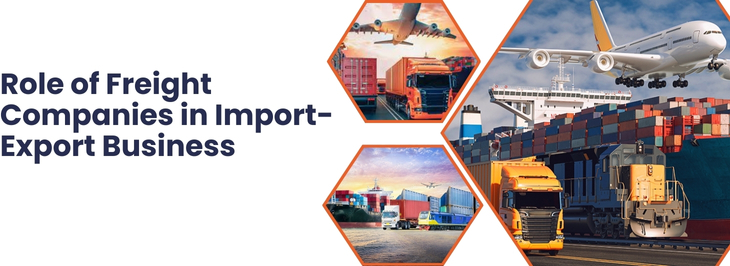Modern freight companies offer comprehensive services including customs clearance, documentation preparation, cargo insurance, warehousing, inventory management, and supply chain consulting. They also provide tracking systems, regulatory compliance support, and risk management services.
Introduction
Global commerce has transformed dramatically over recent decades, with international trade becoming increasingly complex and demanding. At the heart of this transformation lies the critical function performed by freight companies, whose expertise enables businesses to navigate intricate supply chains spanning continents. These specialized organizations serve as the vital connectors between manufacturers, suppliers, and consumers across international borders.
Understanding the Modern Trade Landscape
International commerce involves numerous stakeholders, regulatory frameworks, and logistical challenges that can overwhelm businesses attempting to manage operations independently. Freight companies emerge as essential partners, providing specialized knowledge and infrastructure necessary for successful cross-border transactions.
The complexity of modern trade extends beyond simple transportation. Documentation requirements, customs procedures, insurance considerations, and compliance with international regulations create layers of complexity that demand professional expertise. Companies specializing in freight services possess deep understanding of these intricacies, enabling smooth movement of goods across global markets.
Regional hubs play increasingly important roles in facilitating international trade. Logistics Companies in Jaipur, for instance, leverage the city's strategic position to connect domestic manufacturers with global markets while serving as entry points for international goods reaching Indian consumers. These regional centers contribute significantly to national trade volumes through their specialized services.
Core Functions of Freight Service Providers
Documentation and Compliance Management
International shipments require extensive paperwork, including commercial invoices, packing lists, certificates of origin, and various regulatory documents. Freight companies maintain expertise in preparing and managing these documents, ensuring compliance with both origin and destination country requirements. This specialization prevents costly delays and potential legal complications.
Professional freight handlers understand the nuances of different trade agreements, duty structures, and regulatory changes that frequently impact international commerce. Their knowledge base encompasses everything from Harmonized System codes to specific country requirements for particular product categories.
Multi-Modal Transportation Coordination
Effective international shipping often requires combining multiple transportation methods – ocean freight, air cargo, rail transport, and road delivery. Freight companies excel in coordinating these various modes, optimizing routes for cost-effectiveness and delivery speed while maintaining cargo security throughout the journey.
This coordination involves handling carrier relationships, securing cargo space, negotiating competitive rates, and ensuring smooth transfers across multiple transport modes. Such an integrated approach helps businesses cut delays and lower overall shipping expenses.Customs Clearance Expertise
Navigating customs procedures represents one of the most challenging aspects of international trade. Freight companies maintain specialized customs brokerage capabilities, ensuring proper classification of goods, accurate duty calculations, and timely clearance procedures. Their established relationships with customs authorities facilitate smoother processing and reduced clearance times.
Understanding duty optimization strategies, free trade agreement benefits, and special customs programs enables these companies to minimize costs while ensuring full compliance with regulations. This expertise proves invaluable for businesses seeking to optimize their international trade operations.
Strategic Advantages for Import-Export Businesses
Risk Mitigation
International shipping involves numerous risks, including cargo damage, weather delays, political instability, and regulatory changes. Freight companies provide comprehensive risk assessment and mitigation strategies, including appropriate insurance coverage and contingency planning. Their experience in handling various scenarios enables proactive problem-solving and damage control.
Professional freight handlers maintain networks of reliable partners worldwide, ensuring consistent service quality regardless of destination. This reliability reduces business risks associated with unknown service providers in unfamiliar markets.
Cost Optimization
Economies of scale achieved by freight companies translate into significant cost savings for their clients. By consolidating shipments and negotiating volume discounts with carriers, these companies offer competitive rates that individual businesses typically cannot achieve independently.
Third Party Logistics Companies provide additional cost advantages through efficient warehouse management, inventory optimization, and streamlined distribution processes. These services reduce overall supply chain costs while improving operational efficiency.
Technology Integration
Modern freight companies invest heavily in technology platforms that provide real-time tracking, automated documentation, and integrated communication systems. These technological capabilities enhance visibility throughout the supply chain, enabling better planning and customer service.
Advanced analytics and reporting tools help businesses optimize their shipping patterns, identify cost-saving opportunities, and improve overall supply chain performance. This data-driven approach supports informed decision-making and continuous improvement initiatives.
Regional Specialization and Local Expertise
Different regions offer unique advantages and face specific challenges in international trade. Companies like Jyoti Freight understand local market dynamics and regulatory environments, providing tailored solutions that address regional requirements while maintaining global connectivity.
Transport Service in Jaipur providers capitalize on the region's growing industrial base and strategic location to offer specialized services for various industry sectors. This local expertise combined with international reach creates powerful synergies for businesses seeking to expand their global footprint.
Regional specialization enables freight companies to develop deep expertise in specific trade lanes, understanding seasonal patterns, carrier preferences, and regulatory nuances that impact shipping efficiency and costs. This specialized knowledge translates into better service quality and cost-effectiveness for clients.
Industry-Specific Solutions
Different industries have unique shipping requirements that demand specialized expertise. Pharmaceutical companies need temperature-controlled transportation and strict documentation for regulatory compliance. Automotive manufacturers require precise timing and damage prevention for high-value components.
Freight companies develop industry-specific capabilities, including specialized equipment, trained personnel, and established procedures that address these unique requirements. This specialization ensures compliance with industry regulations while optimizing operational efficiency.
3pl Logistics Company providers often specialize in particular industry sectors, developing comprehensive understanding of specific requirements, seasonal patterns, and regulatory compliance needs. This focused expertise enables them to provide superior service quality and value-added solutions.
Technology and Innovation Impact
Digital transformation continues reshaping the freight industry, with innovations in tracking systems, automated documentation, and predictive analytics improving service quality and efficiency. Blockchain technology promises enhanced security and transparency in international transactions.
Artificial intelligence applications enable better route optimization, demand forecasting, and risk assessment. These technological advances help freight companies provide more accurate delivery estimates, reduce costs, and improve overall customer satisfaction.
Internet of Things (IoT) devices provide real-time monitoring of cargo conditions, including temperature, humidity, and location data. This enhanced visibility enables proactive problem resolution and ensures product quality throughout the shipping process.
Future Trends and Opportunities
Sustainability is now a key factor in global shipping, with freight providers adopting eco-friendly transport solutions and carbon offset programs. These efforts enable businesses to achieve their environmental targets while staying efficient in operations.
The rapid rise of e-commerce is fueling demand for quicker and more flexible delivery solutions. In response, freight providers are creating specialized services for small parcel shipping, last-mile delivery, and efficient return logistics.
Trade agreement changes and geopolitical developments create both challenges and opportunities in international commerce. Freight companies with diverse route options and flexible operational capabilities help businesses navigate these changes effectively.
Measuring Success and Performance
Key performance indicators for freight services include on-time delivery rates, damage frequencies, cost per shipment, and customer satisfaction scores. Leading freight companies maintain comprehensive metrics and provide regular reporting to help clients assess performance and identify improvement opportunities.
Continuous improvement initiatives focus on reducing transit times, minimizing costs, and enhancing service quality. These efforts require collaboration between freight companies and their clients to identify pain points and develop effective solutions.
Building Strategic Partnerships
Successful international trade requires strong partnerships between businesses and their freight service providers. These relationships extend beyond simple vendor arrangements to become strategic alliances that support business growth and expansion goals.
Effective partnerships involve regular communication, performance reviews, and collaborative planning for future requirements. Freight companies that invest in understanding their clients' business objectives can provide more valuable services and support long-term success.
Conclusion
Freight companies serve as indispensable partners in modern international trade, providing expertise, infrastructure, and technology that enable businesses to compete effectively in global markets. Their role extends far beyond simple transportation to encompass comprehensive supply chain management, risk mitigation, and strategic support.
As global trade continues evolving, freight companies must adapt to changing requirements while maintaining their core value proposition of reliable, cost-effective service. Businesses that develop strong partnerships with capable freight providers position themselves for success in increasingly competitive international markets.
The future of import-export business depends heavily on the continued evolution and improvement of freight services. Companies that recognize this dependency and invest in quality partnerships will find themselves better positioned to capitalize on global opportunities while managing the inherent complexities of international commerce.
Frequently Asked Questions (FAQs)
Freight companies achieve cost reductions through volume discounts with carriers, route optimization, efficient documentation processes, duty optimization strategies, and economies of scale in warehousing and handling operations.
Freight forwarders primarily focus on transportation and customs clearance services, while 3PL companies provide broader logistics services including warehousing, inventory management, order fulfillment, and comprehensive supply chain solutions.
Local expertise is crucial for understanding regional regulations, cultural business practices, carrier relationships, and specific market requirements. This knowledge helps avoid delays, reduce costs, and ensure compliance with local requirements.
Modern freight companies should provide real-time tracking systems, automated documentation platforms, online portals for shipment management, electronic data interchange (EDI) capabilities, and comprehensive reporting and analytics tools.



